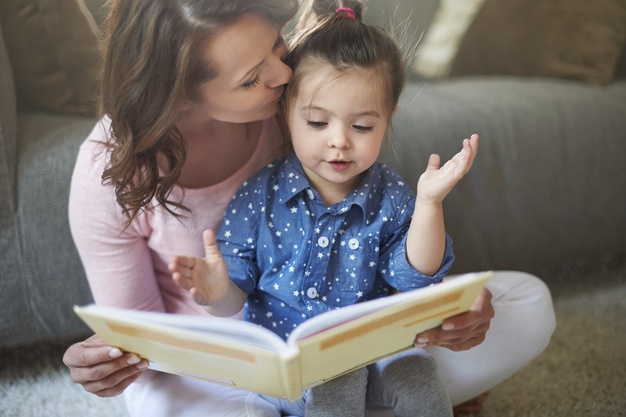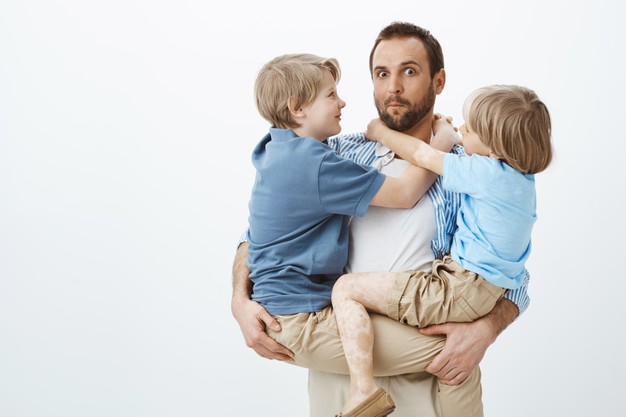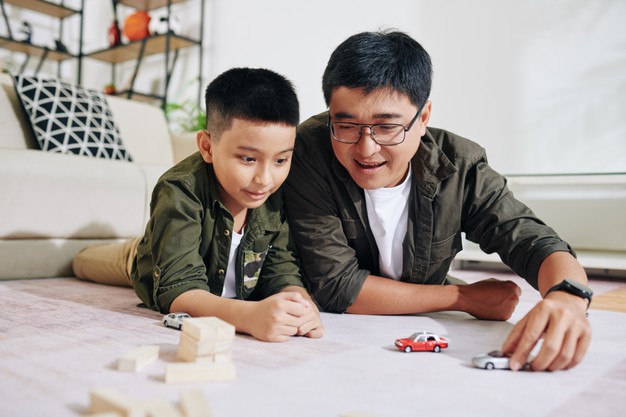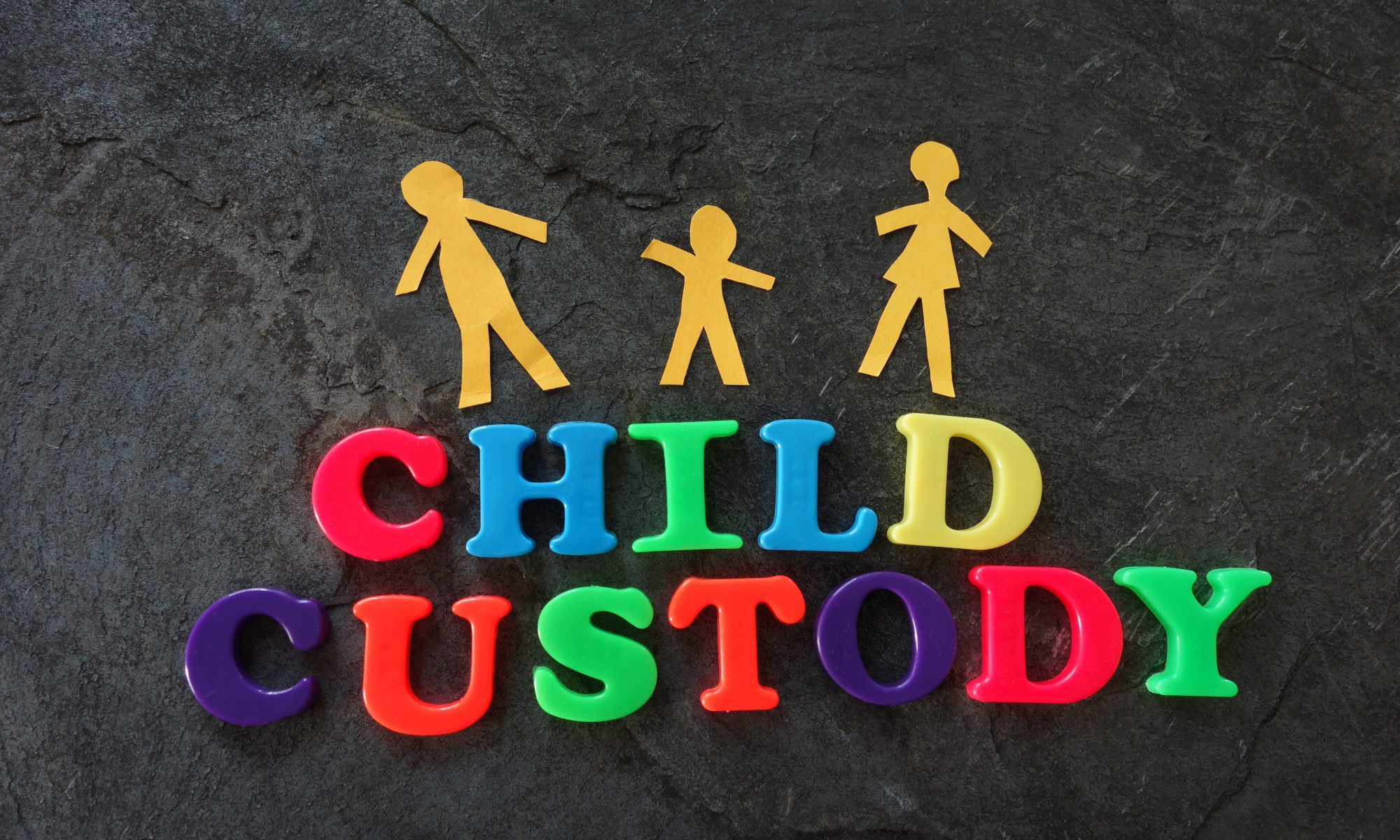When you and the other parent of your child or children are no longer together, the holidays can be rough. You want to give the best holiday experience to your entire family, but our stereotype of that experience involves a family that’s still together.
Not being romantically involved with your former partner doesn’t mean that you can’t have a fun and stress-free holiday, though. After all, children often joke about the one benefit of parents in separate households: two holidays!
Jokes aside, I want to tell you how you make co-parenting easy. Between using a co-parenting app, opening up communication, managing bad feelings, and more, here are my top tips for making your holidays special despite your situation.
Talk to Your Children
The first and most important thing that you need to do is talk to your children about the holidays (as long as they’re old enough to understand). Your children are the first priority for both you and your former partner.
If you’re old enough, ask them what they would like to do. While their choice isn’t the only factor, it gives you a good baseline. The holidays are often child-focused.
Some children may want to stay with the parent that’s nearest their friends if the other one lives far away. Other children will want to split time. Asking their opinions gives them agency and helps them understand the negotiating process.
Also, regardless of age, make sure that they understand the situation, especially if it’s your first holiday after a separation. They don’t know what to expect and they may get disappointed if they realize last-minute that the holidays are going to be different this year.
Preparing them ahead of time will make them more comfortable when the holidays finally roll around. This is the new normal, and it may take more than one holiday for them to accept it, but starting them off on the right foot is all that you can do.
Make Arrangements With Your Former Partner Ahead of Time
You need to plan ahead. You don’t want to have any last-minute disputes over who gets to spend how much time with your children and where they get to spend that time. There are several ways that you can handle this situation.
If you’re on good terms, this still applies. Even the most civil or friendly of co-parenting relationships could get tense during the holidays whether you’re on your first go-around or you’ve been doing this for a while.
Talk with your former partner about what you want and why you want it, and give them space to do the same. Think of this as a continuation of your separation negotiations.
If you’re not on good terms, try putting aside your differences for your children, even if this means talking through a middle-man or doing everything online.
It’s good to have things on paper. Whether it’s in the paperwork for your separation and custody agreements, written in a later contract, recorded on a co-parenting calendar, or simply discussed via text or email, having it on paper allows you to have a paper trail and prevents you or your former partner from forgetting.
Split Time Equally
Unless there are unusual circumstances, it’s best to split time so both parents have an equal holiday experience with their children. That said, this looks different for every family.
If you and your former partner live far away from each other, like in different states (or even countries), it may not be possible for your children to spend the same holiday in both places. In this situation, consider alternating years, but evening out the difference with other holidays.
For example, one parent gets the winter holidays one year, but during that same year, the other parent gets Halloween or Thanksgiving. While it’s not the same, it’s fair. You exchange spots every year outside of extenuating circumstances.
When you live close together, it’s generally easier to switch back and forth. While only one parent will have the actual holiday (and you should still swap every year), the days before and after are still valuable.
Consider giving Christmas eve to one parent and Christmas to the other. You could also consider giving New Years to the parent that didn’t get Christmas.
If you’re in an ideal situation, it’s possible that one parent doesn’t celebrate the same holiday as the other. If you celebrate Channukah and your former partner celebrates Christmas, there’s no problem.
Work Past Bad Feelings
Sometimes you need to work through your own emotions when there are other people in the relationship. If your or your partner (or both) re-marries, there may come a time when the children could spend more holiday time with them as they could have two sets of families on each side.
Consider seeing a counselor to discuss this as it’s a more complicated situation. It’s okay to be uncomfortable with your children spending time with the other family, but they come first.
Discuss Gifts and Activities
It’s crucial that you and your co-parent discuss the details of the holidays before they come around. Notably: the gifts and events.
While doubling up on gifts once in a while is no big deal (after all, who doesn’t want to have a bike or television at both houses?), it’s a good idea to make sure that most gifts are given by one parent or the other.
If your child still believes in Santa, not discussing gifts ahead of time could ruin the illusion.
Make sure that neither parent tries to “out-do” the other one to cause tension with the children. If you want to get a large gift, like a cell phone, consider doing so together. There’s no need for one parent to out-do the other when the goal is to give the kids a great holiday.
These rules also apply to events. If you live near each other, it’s tempting to take advantage of every event even if you’re doubling up. Instead, try to split them.
For example, one parent gets to do photos with Santa while the other gets to go through a winter wonderland display.
Some children may not mind doing an event more than once, but you don’t want one parent getting to all of them first so the child is bored by the time they go through them again.
Use A Co-Parenting App
It’s time to start using technology to your advantage. Using a co-parenting app and co-parenting calendar makes everything more seamless year-round.
Using that app, you can create a parenting calendar that lets you make and track an easy-to-read schedule. When changes come up, they’re easy to make and both parents have access so there’s no confusion.
It’s easy to message back and forth in a secure setting so there’s no chance of children finding out about potential gifts. You don’t want them listening in on the phone!
It’s also great for exchanging holiday photos. The parent without the children on the holiday may feel sad that they’re missing out. When you can share photos right away, it takes away some of the stress.
You can even set up a private “social network” so that both sides of the family can keep up with each other. You can post pictures, statuses, videos, articles, and more so everyone has access.
This is a great alternative if you’re no longer comfortable with having your former partner on your normal social media accounts.
The apps make co-parenting as easy and painless as possible during the holidays and beyond.
Consider Mediation or Counseling
If you’re having trouble with the negotiation process, there’s nothing wrong with seeking out an unbiased third party to help. The holidays are stressful, so even if you usually get along, you may run into snags.
Many people continue counseling even after the relationship is over. It’s good for you, it’s good for the kids, and it’s a good way to avoid problems when situations like this arise.
Instead of managing the stress on your own, talk to a mediator.
Give Children Special Experiences
If your children are new to having to split their holidays, it’s important that you remind them that the holidays are still a happy and special time of year. You don’t want to make them sad or you may risk your child associating that feeling with the holidays.
This is a perfect time to plan out special experiences.
If you can, look for fun events like breakfast with Santa, light shows, musicals, and anything else that could get your child into the festive spirit. If they have a favorite place that isn’t holiday-related, now is a great time to take them.
You should spend as much family time together as possible. Not all holiday activities are expensive or far from home.
Take your child ice skating or watch some favorite holiday movies with them. Make a point to decorate the tree (if you use one) as a family. If your child bought a gift for their other parent, help them wrap it so they know there’s no animosity.
You can use this time to set up traditions, like baking special cookies every year or making decorations.
A split holiday doesn’t have to be a bad holiday. When you show your child how special and warm it can be, they won’t fret when it’s time to split households.
Consider Celebrating Together
This is an unusual situation, but if you and your co-parent are both up for it, see if you’re able to celebrate together under one roof.
This isn’t always an option, especially soon after the separation occurs. That’s okay and you shouldn’t feel bad about it.
That said, if you’re on good terms (or even friends), it doesn’t hurt to consider the possibility of working together to make a special holiday for the kids. This doesn’t mean that you’re best friends or reuniting. You’re doing this for the children.
Your child needs to know (or at least perceive) that you and your former partner are getting along. There should be no yelling, arguing, or otherwise disrupting the peace.
Coming together for a holiday may give your child a more stable situation. Make sure that they understand that this is a friendly occasion rather than a romantic one.
Even if your former partner has a new partner, coming together in this way can be enjoyable if you’re ready. Don’t pressure yourself, though.
Be Flexible
Flexibility is everything, even during “normal” holidays. There’s so much to do and so little time and things rarely go to plan.
This is extra true when you’re co-parenting during the holidays.
Remember that things on either side may go awry. It’s possible that the other parent needs you to have the kids even when it’s “their year,” or vice-versa.
For example, if your co-parent has someone on their side of the family that they don’t get to see often who doesn’t get many opportunities to see the children, consider letting them have “your year” after negotiating a good alternative.
Be Gentle on Yourself
At the end of the day, this is a stressful time. You’re managing a new situation and it’s normal to feel overwhelmed. You need to take time for yourself.
Engage in self-care and try to slow down despite the quick pace of the holidays. Consider seeking individual counseling if you need to discuss the events without commentary or judgment.
Don’t put pressure on yourself to give your kids a perfect holiday. No holiday is perfect. What matters is that you’re doing your best to provide a special experience despite the circumstances. Taking care of your mental health helps you provide a better holiday for the kids.
Use These Co-Parenting Tips for an Easier Split Holiday
No one ever said that co-parenting during the holidays was going to be easy. By using a helpful co-parenting app, keeping an open conversation with your co-parent, and prioritizing the children, it doesn’t have to be stressful.
Remember that both you and your former partner have your children’s best interests at heart. What matters is that you all have a joyful holiday season.
Are you looking for more guidance and help for your co-parenting experience? Not only does 2houses have helpful articles that make co-parenting easy, but they also have a great co-parenting app that helps you manage all of the details of your split custody.
For one price per family, you can revitalize your co-parenting. Sign up today and start a 14-day free trial so you can see the difference.















